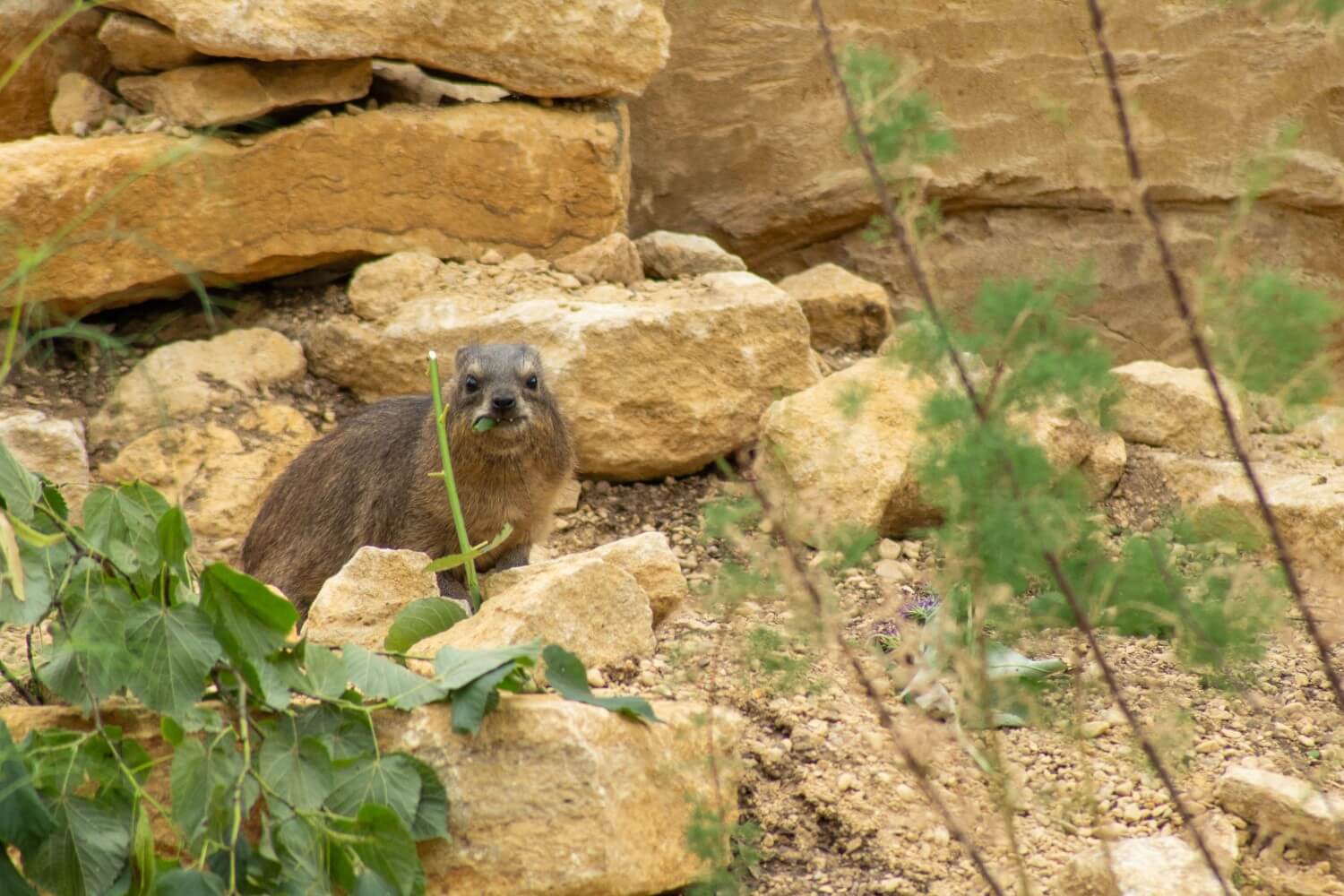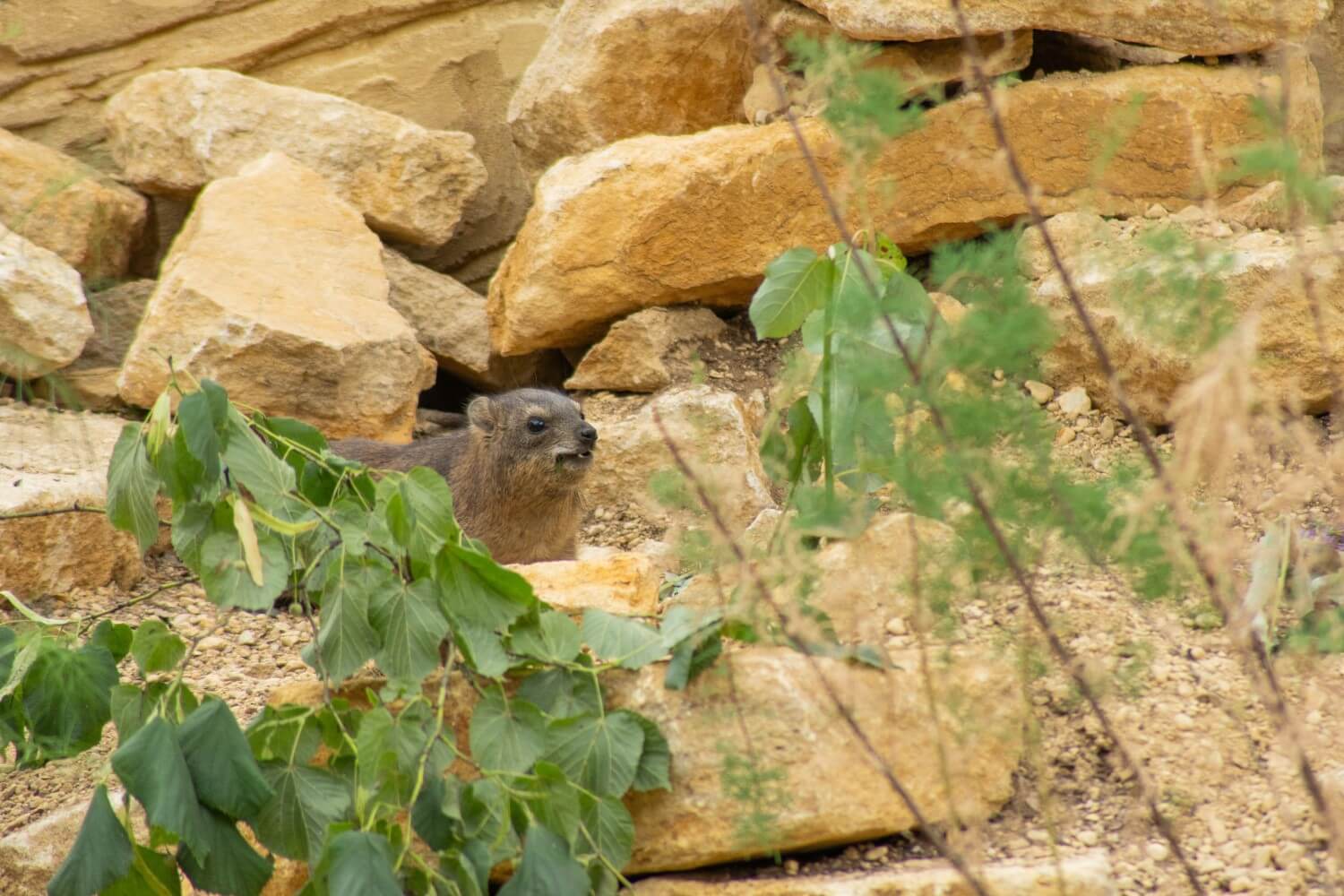Rock hyrax
Common Name: Rock hyrax
Scientific Name: Procavia capensis
Sharing an ancestor with the elephant, these small terrestrial mammals are often found in dry rocky areas of Africa and the Arabian Peninsula.
Their diet consists of a variety of plants, particularly the fruit, buds and tender shoots.
At present they are listed as being of Least Concern and numbers are reported to be stable in the wild.
Rock hyrax are very agile climbers with the ability to jump and very good sight and hearing.
Fast Facts
-
Status
Least Concern
-
Size
44-54cm long
-
Weight
4-5kg
-
Gestation
7 months
-
Young
1-4
-
Lifespan
9-12 years
In the wild
Rock Hyrax will eat most plants, buds, shoots, flowers and berries as well as grasses, forbs and shrubs. They often cause damage to crops and gardens.
Rock hyrax are normally found in dry, rocky areas, cliffs and boulders in Africa and the Arabian Peninsula. They have also been found in a range of habitats ranging from deserts to rainforests.
Rock hyrax typically live in groups of a single adult male and several adult females. Pregnancy normally results in 1-4 infants who are born with a full coat of fur. They are weaned within six months.
There are no major threats to this species other than human hunters and snarers who prize the species skin and meat. The species is also poached for sport.
At present, numbers are reported to be stable and the species is present in a wide range of habitats with large populations in some. These areas include a number of large protected areas.

